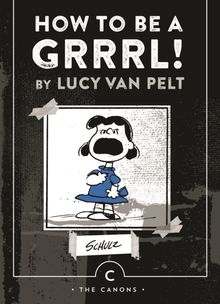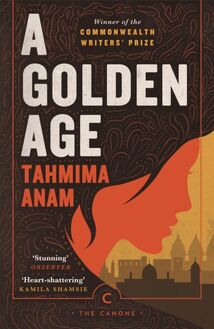Spare Room , livre ebook
70
pages
English
Ebooks
2008
Vous pourrez modifier la taille du texte de cet ouvrage
Obtenez un accès à la bibliothèque pour le consulter en ligne En savoir plus
Découvre YouScribe en t'inscrivant gratuitement
Découvre YouScribe en t'inscrivant gratuitement
70
pages
English
Ebooks
2008
Vous pourrez modifier la taille du texte de cet ouvrage
Obtenez un accès à la bibliothèque pour le consulter en ligne En savoir plus
Publié par
Date de parution
07 mars 2008
Nombre de lectures
0
EAN13
9781847673619
Langue
English
Publié par
Date de parution
07 mars 2008
Nombre de lectures
0
EAN13
9781847673619
Langue
English
Helen Garner writes novels, stories, screenplays and works of non-fiction. In 2006 she received the inaugural Melbourne Prize for Literature, and in 2016 she won the prestigious Windham-Campbell Prize for non-fiction. Her most recent book, Everywhere I Look , won the 2017 Indie Book Award for Non-Fiction. She lives in Melbourne.
Also by Helen Garner Fiction Monkey Grip (1977) Honour and Other People’s Children (1980) The Children’s Bach (1984) Postcards from Surfers (1985) Cosmo Cosmolino (1992) Non-fiction The First Stone (1995) True Stories (1996) Joe Cinque’s Consolation (2004) This House of Grief (2014) Everywhere I Look (2016) Film scripts Two Friends (1986) The Last Days of Chez Nous (1992)
The Canons edition published in Great Britain in 2019 by Canongate Books
This digital edition first published in 2008 by Canongate Books
First published in Great Britain in 2008 by Canongate Books Ltd, 14 High Street, Edinburgh EH1 1TE
First published in Australia in 2008 by Text Publishing Company, Swann House, 22 William Street, Melbourne, Victoria 3000
canongate.co.uk
Copyright © Helen Garner, 2008
The right of Helen Garner to be identified as the author of this work has been asserted by her in accordance with the Copyright, Designs and Patents Act 1988
The Spare Room is a work of fiction. Any similarity between the characters in this book and real people, living or dead, is coincidental
British Library Cataloguing-in-Publication Data A catalogue record for this book is available on request from the British Library
ISBN 978 1 78689 608 7 eISBN 978 1 84767 361 9
‘It is a privilege to prepare the place where someone else will sleep.’
E LIZABETH J OLLEY
Contents
FIRST, in my spare room THE BACK of my house faced south ON TUESDAY morning we took the train to the city AT BREAKFAST time Nicola was in pain WE WENT to bed early GOD BLESS morphine WHEN I walked into the kitchen ON FRIDAY morning Nicola set off NICOLA slept RAVAGED she might have been ON TUESDAY morning MR HATHAWAY the neurosurgeon had rooms I DIDN'T know then
FIRST, in my spare room, I swivelled the bed on to a north-south axis. Isn’t that supposed to align the sleeper with the planet’s positive energy flow, or something? She would think so. I made it up nicely with a fresh fitted sheet, the pale pink one, since she had a famous feel for colour, and pink is flattering even to skin that has turned yellowish.
Would she like a flat pillow or a bulky one? Was she allergic to feathers, or even, as a vegetarian, opposed to their use? I would offer choice. I rounded up all the extra pillows in the house, slid each one into a crisply ironed slip, and plumped them in a row across the head of the bed.
I pulled up the wooden venetian and threw open the window. Air drifted in, smelling leafy, though you couldn’t see a leaf unless you forced open the flywire screen and leaned right out. She had been staying for months with her niece Iris, on the eighth floor of an art deco apartment block in Elizabeth Bay whose windows, I imagined, pointed due north over a canopy of massive Sydney figs, towards the blue field of the harbour.
The immediate view from my spare room, until I could get some geraniums happening in a window box, was of the old grey paling fence that separated my place from my daughter Eva’s. The sash window faced east, though, and the light bouncing off the weatherboard side of Eva’s house kept the room bright till well into the afternoon. Also, it was late October, which in Melbourne is supposed to be spring.
I was worrying about her feet. The floor of her room was bare timber, except for a worn kilim full of rips. What if she snagged one of her long, elegant toes in it? What if she fell? Slippers were among the things she didn’t bother with, along with suitcases, bras, deodorants, irons. I rolled up the dangerous kilim and threw it into the back shed. Then I drove over to a shop opposite Piedimonte’s supermarket, where my friend Peggy, who knows about these things, said they sold tribal rugs. Straight away I spotted a pretty one: blossoms of watery green and salmon twining on a mushroom ground. The bloke told me it was Iranian, vegetable dyed. I chose it because it was faded. She would hate me to buy anything specially; to make a fuss.
Would she want to look at herself? It was months since I had last laid eyes on her: all I knew was from our emails. Every time the news sounded bad under her chirpy chatter, I would suggest flying up to Sydney. But she put me off. She was going out to dinner and couldn’t change the date, or there wouldn’t be a bed for me, or she didn’t want me to waste my money. She might take it the wrong way if her room lacked a mirror. Behind the bookshelf in my workroom I found one I’d bought in an Asian import shop at Barkly Square and never used: a tall, narrow, unframed rectangle of glass, its back still equipped top and bottom with strips of double-sided adhesive tape. I selected a discreet spot for it, just inside the door of her room, and pressed it firmly against the plaster.
On the bedside table I fanned out some chord charts to have a crack at on our ukuleles—‘Pretty Baby’, ‘Don’t Fence Me In’, ‘King of the Road’. I arranged the reading lamp on a gracious angle, and placed beside it a mug full of nameless greenery that I’d found near the back shed. Then I went along the corridor to my room at the front of the house and lay on the bed with my boots on. It was four o’clock in the afternoon.
What woke me, ten minutes later, was a horrible two-stage smash, so sickening, so total, that I thought someone had thrown a brick through the side window. I rushed out all trembly and ran along the hall. Nothing moved. The house was quiet. I must have dreamt it. But the edge of the old hall runner, halfway to the kitchen, was weirdly sparkling. I stepped over it and into the spare room. The mirror no longer existed. The wall was bare, and the Iranian rug was thick with the glitter of broken glass.
I swept with the dustpan and brush, I beat with the millet broom, I hoovered in cunning angled strokes. The fragments of mirror were mean-shaped and stubborn, some so minuscule that they were only chips of light. They hid against the rug’s scalp, in the roots of its fur. I got down on my knees and picked them out with my fingernails. When the daylight faded and I had to stop, my sister Connie rang me.
‘A mirror broke? In her room?’
I was silent.
Then she said, in a low, urgent voice, ‘Don’t. Tell. Nicola.’
~
‘Three weeks she’s staying?’ said my friend Leo, the psychiatrist. That Saturday evening I sat in the spartan kitchen of his South Yarra place and watched him cook. He poured the pasta into a strainer and flipped it up and down. ‘Why so long?’
‘She’s booked in to do a course of alternative treatment down here. Some outfit in the city. They’ve fast-tracked her. She’s supposed to present herself there first thing Monday morning.’
‘What sort of treatment?’
‘I was loath to ask. She talks about peroxide drips, awful stuff. She’s already been getting big doses of vitamin C in Sydney. Eighty thousand units, she said. Intravenous. With something called glutathione. Whatever that is.’
He stood very still with the dripping colander in his hand. He seemed to be controlling himself: I had never before noticed the veins in his temples, under the curly white hair. ‘It’s bullshit, Helen.’
We started to eat. Leo let a shrink’s silence fall, as he forked in food. His terrier, black and white, squatted by his chair and gazed up at him with helpless love.
‘It is bullshit, is it?’ I said. ‘That’s my instinct. Get this. When the bowel tumour showed up on the scan, she asked the oncologist to hold off treatment for a while. So she could take a lot of aloe vera. He said, “Nicola. If aloe vera could shrink tumours, every oncologist in the world would be prescribing it.” But she believes in things. She’s got one of those magnetic mats on the floor behind her couch. She says, “Lie on the mat, Hel. It’ll heal your osteoporosis.”’
Leo didn’t laugh. He looked at me with his triangular brown eyes and said, ‘And do you lie on it?’
‘Sure. It’s restful. She rents it from a shop.’
‘So chemo didn’t work.’
‘She walked around carrying a bag of it plugged into the back of her hand. She’s had surgery. She had radiation. They’ve told her they can’t do any more for her. It’s in her bones, and her liver. They said to go home. She spent five days at a Petrea King workshop. I’d heard good things about that, but she said it wasn’t her style. Then she went to someone she called a healer. He said she had to have her molars out—that the cancer was caused by heavy metals leaking out of her fillings.’
Leo put his head in his hands. I kept eating.
‘Why is she coming to you?’
‘She says I saved her life. She was about to send a lot of money to a biochemist up in the Hunter Valley.’
‘A biochemist?’
‘A kinesiologist told her this bloke’s had a lot of success with cancer. So she phoned him up. He said he wouldn’t need to see her. Just have a look at her blood picture. She was supposed to send him four grand and he’d post her the exact right herbs to target the cancers. “Essence of cabbage juice” was mentioned.’
I let out a high-pitched giggle. Leo looked at me steadily, without expression.
‘And he told her she shouldn’t worry if she heard unfavourable things about him, because he had enemies. People who were out to get him. I was trying to be tactful, so I asked her, “How did you feel, when he told you that?” She said, “I took it as a guarantee of integrity.”’
My cheeks were hot. I knew I must be gabbling.
‘I was scared she’d accuse me of crushing her last hope. So I went behind her back and called a journalist I know. He ran a check. Turns out the so-called biochemist’s a well-known conman. He makes the most outlandish claims. Before he went into alternative health he’d spent years in gaol for armed robbery. I ra














